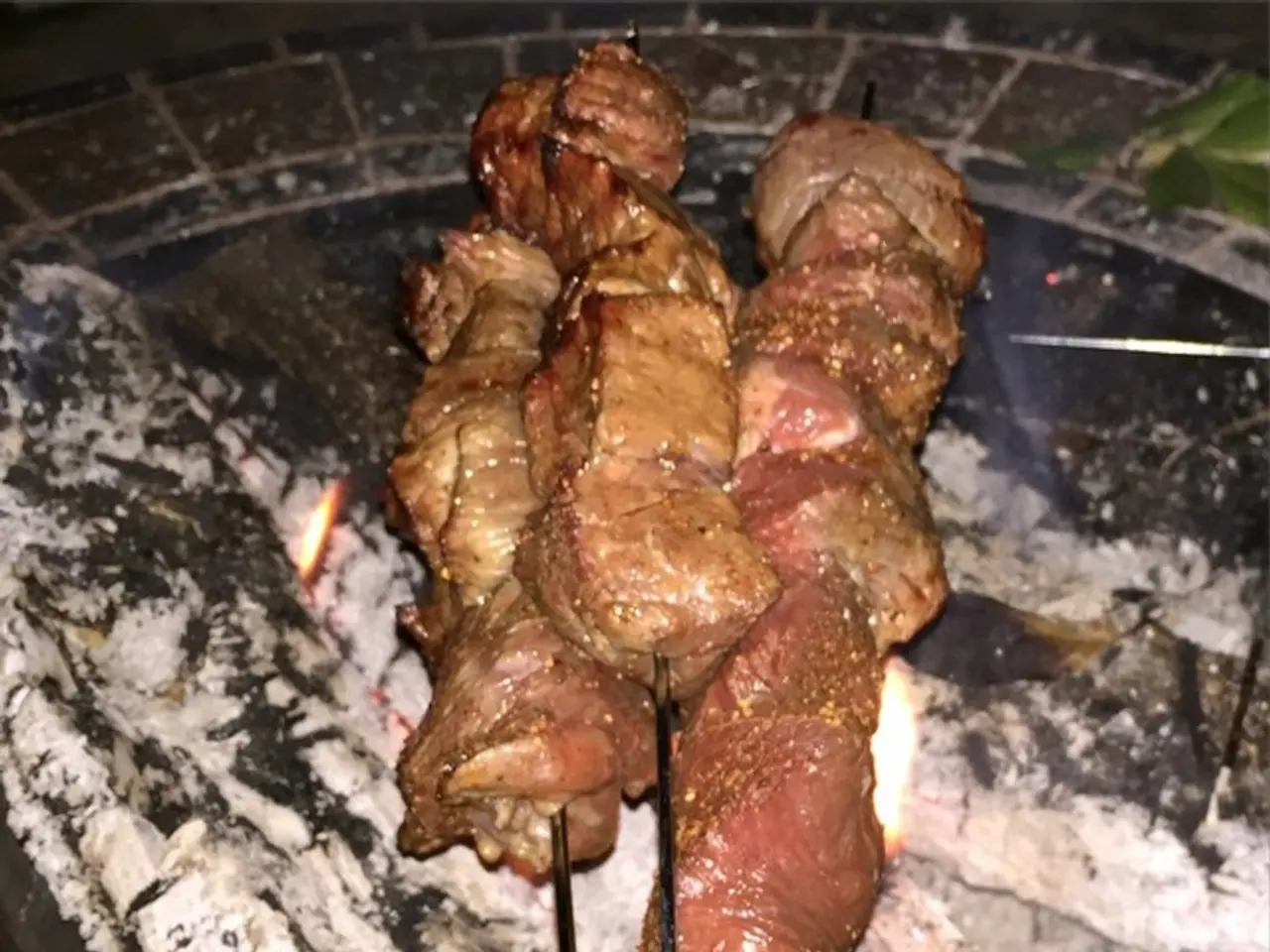Harmful Eats Linked to Cancer
In a world where convenience often wins over nutrition, it's crucial to understand the impact of certain foods on our health, particularly cancer risk.
Ultra-processed foods (UPF) have been strongly associated with higher risks of overall cancer, particularly colorectal, breast, ovarian, pancreatic, and lung cancers. These foods, which often contain high levels of sugar, salt, unhealthy fats, and various additives, have a low nutritional value and can displace protective foods like fruits and whole grains from our diets[1][2].
Processed meats and red meats, especially in high quantities, increase the risk of colorectal cancer. This is linked to compounds like hemes (heme iron) and nitrates/nitrites found in these meats, which can damage the colon lining or form carcinogenic substances during digestion or cooking[3][4]. Grilling meats at high temperatures, causing charring, can produce additional cancer-causing chemicals.
Fried and fast foods often contain unhealthy fats and may also contribute to increased cancer risk through mechanisms similar to processed foods and meats[3].
High intake of added sugars and sweets, including sugary drinks, candies, and refined grains, can promote cancer risk indirectly by contributing to obesity, a known cancer risk factor. While sugar itself doesn’t directly "feed" cancer cells, limiting sugar helps maintain a healthy weight and reduces associated risks.
Some reheated nitrate-rich greens (such as spinach, kale, celery) can form nitrosamines when reheated, substances linked to increased cancer risk. Additionally, reheated rice that has been left out for extended periods can harbor heat-resistant bacteria producing toxins that may harm gut health and potentially raise cancer risk.
A balanced, nutritious diet can help reduce the risk of obesity and type 2 diabetes, conditions that increase a person's risk of developing cancer. People should minimize processed and red meats, processed and fast foods, alcohol, and sugar, and instead include fruit, vegetables, whole grains, lean proteins, healthy fats, and low-fat dairy in their diet. Preparing fresh, homemade meals and snacks from whole foods (fruits, vegetables, nuts and seeds, whole grains) is the healthiest option.
Processed meats, like sausages, hot dogs, salami, bacon, ham, corned beef, and beef jerky, contain carcinogens due to the manufacturing process. However, there are alternatives to processed meats, including fresh, unsmoked fish and chicken, and vegan and vegetarian meat substitutes like tofu.
Processed foods are often high in salt, sugar, fat, and cancer-causing chemicals, and low in fiber, vitamins, and minerals. Organic foods are grown without using cancer-causing pesticides or chemicals. While no single food or diet can prevent cancer, eating a balanced, nutritious diet may help reduce the risk.
Alcohol is a group 1 carcinogen and can increase the risk of throat, esophagus, breast, liver, colon and rectum cancers. Countless other cancer-causing chemicals, such as preservatives, artificial sweeteners, and food dyes, may be present in processed foods.
In summary, prioritizing whole, minimally processed foods and avoiding excessive intake of processed/red meats, ultra-processed products, fried foods, added sugars, and reheated nitrate-rich vegetables may help reduce cancer risk. A balanced, nutritious diet is key to maintaining a healthy lifestyle.
[1] Arem, H., & Sabate, J. (2016). Ultra-processed foods and cancer risk: a systematic review. Nutrients, 8(11), 680.
[2] Fung, T. T., & Hu, F. B. (2016). Ultra-processed foods and the risk for obesity, metabolic syndrome, and type 2 diabetes: an updated systematic review and meta-analysis. American journal of clinical nutrition, 104(3), 737-746.
[3] Aune, D., Keum, N., Giovannucci, E., Fadnes, L. T., Boffetta, P., & Hoffmann, K. (2016). Red and processed meat consumption and cancer incidence, all causes of mortality, and cardiovascular diseases: systematic review and meta-analysis of cohort studies. British journal of cancer, 115(8), 1359.
[4] World Cancer Research Fund/American Institute for Cancer Research. (2018). Continuous update project report: Diet, nutrition, physical activity and cancer: a global perspective.
[5] Wu, A. Y., & Yu, J. Y. (2018). Reheating rice: a review on the nutritional quality, microbial safety, and potential health risks. Food and nutrition research, 62, 1307188.
Read also:
- Alterations in stool associated with bile duct cancer: Appearance, signs, and additional details
- A fundoscope can identify diabetic retinopathy.
- The Impact of Sex Hormones on Aging Cognitive Functions: Expanding Beyond Reproductive Functions
- Eye Drop Drug Eylea: Managing Mild to Severe Adverse Reactions





